Day 12
10 min. of conflict prevention for monkeys and humans in Indonesia
 Peaceful coexistence of humans and orangutans
Peaceful coexistence of humans and orangutans
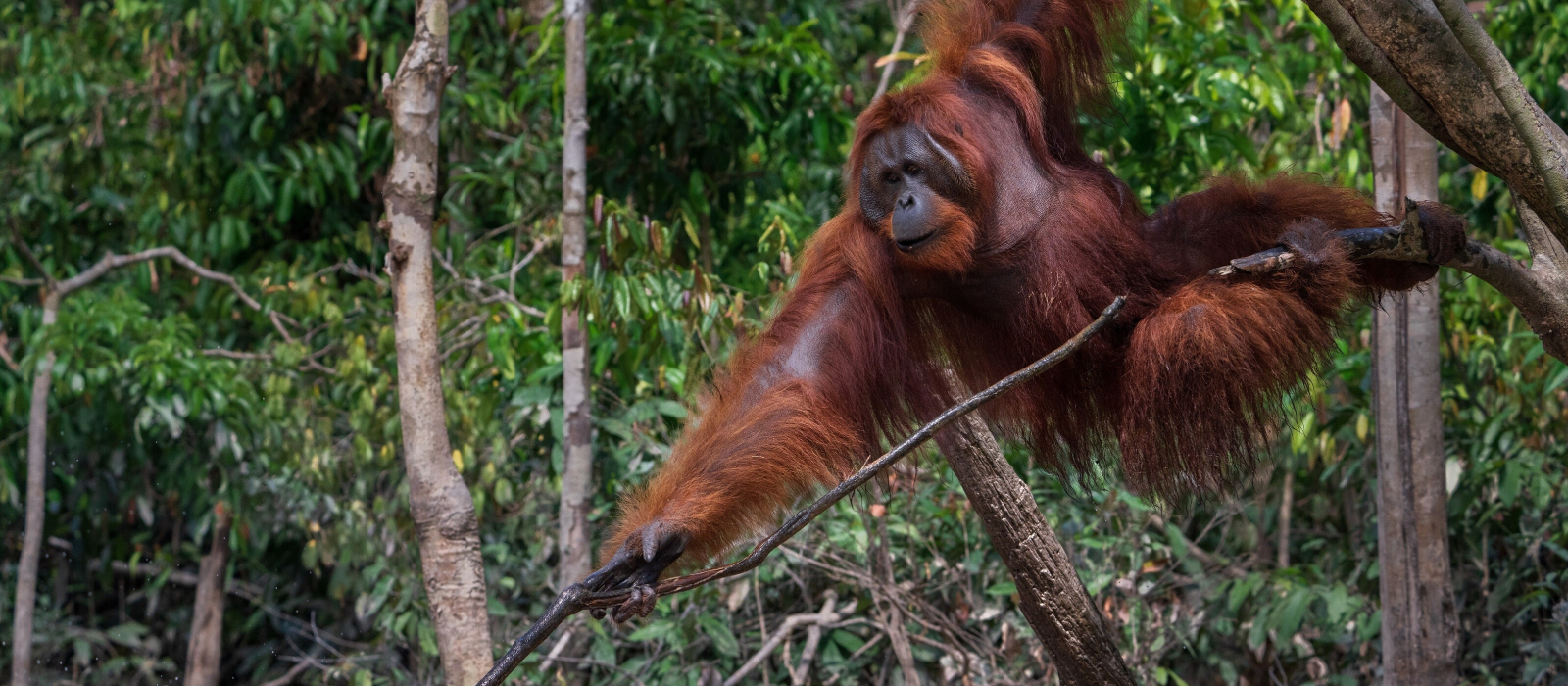

Education and communication protect orangutan lives


Kognitionsbiologin und Primatologin Dr. Isabelle Laumer stellt dir das Projekt im Video vor
need
Education, training and conflict resolution assistance for local communities in human-wildlife conflicts
activity
The local NGO BOS Foundation trains the population in resolving human-animal conflicts, provides compensation funds and relocates orangutans to protected forests
Measurable performance
Number of hours of training and orangutans relocated
Result
More conflicts between orangutans and humans are reported and resolved peacefully
Systemically relevant impact
Preservation of the Borneo orangutan as a species and acceptance of the apes by the local population
background
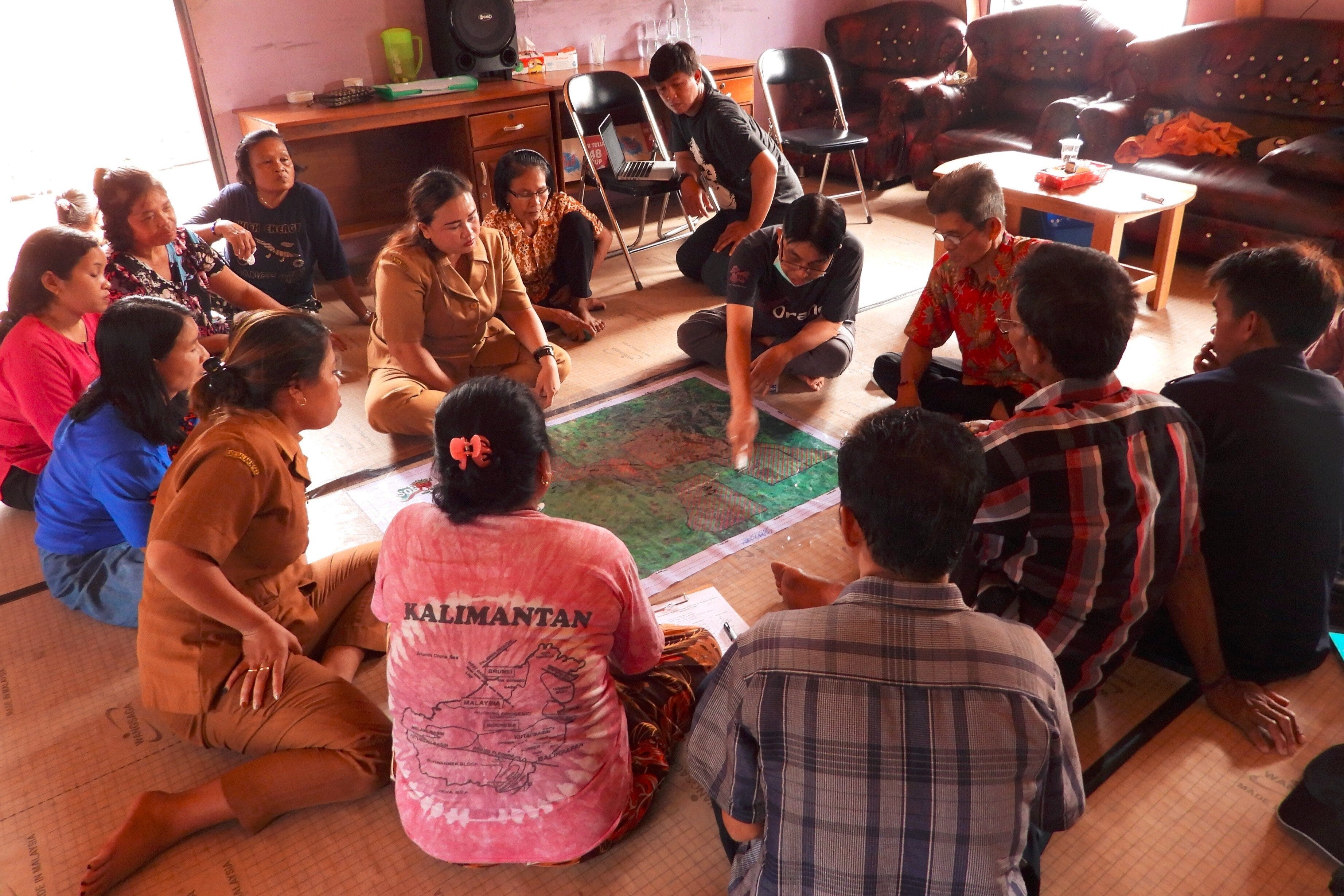
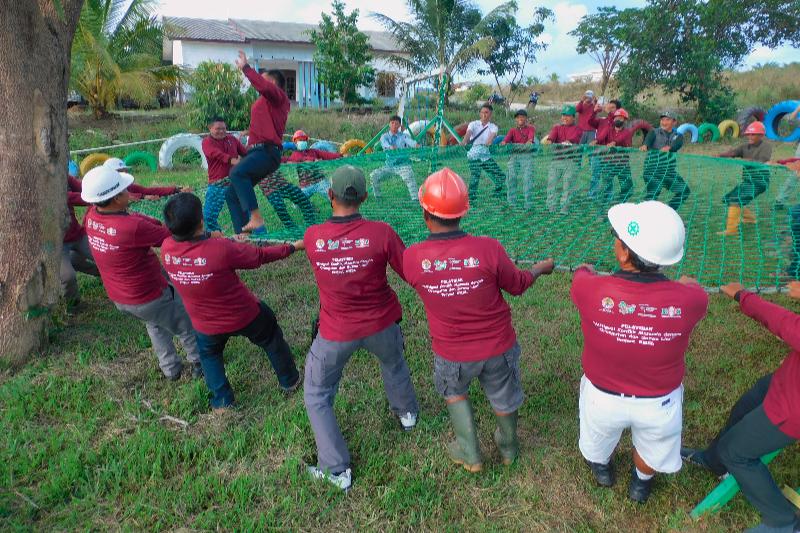
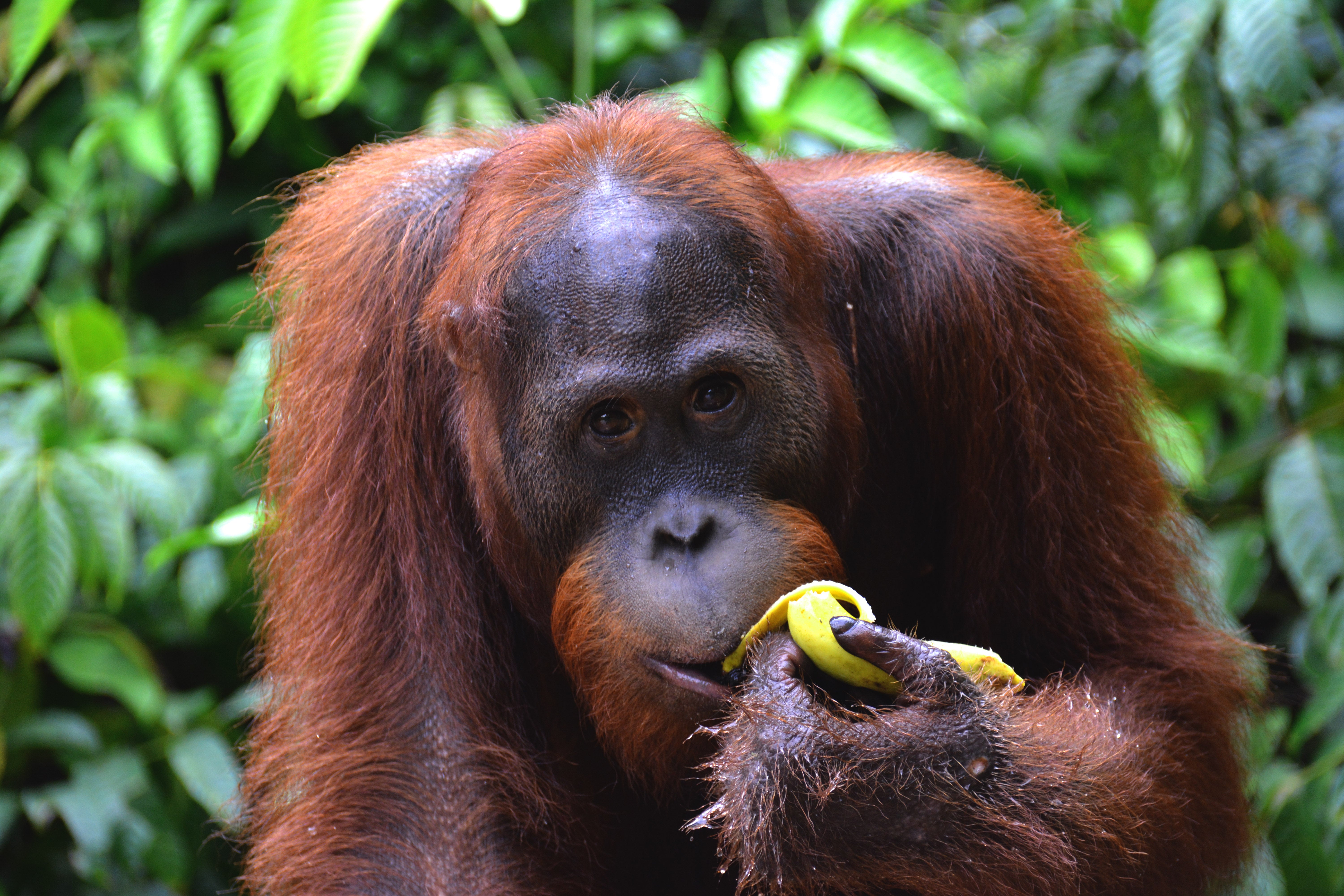
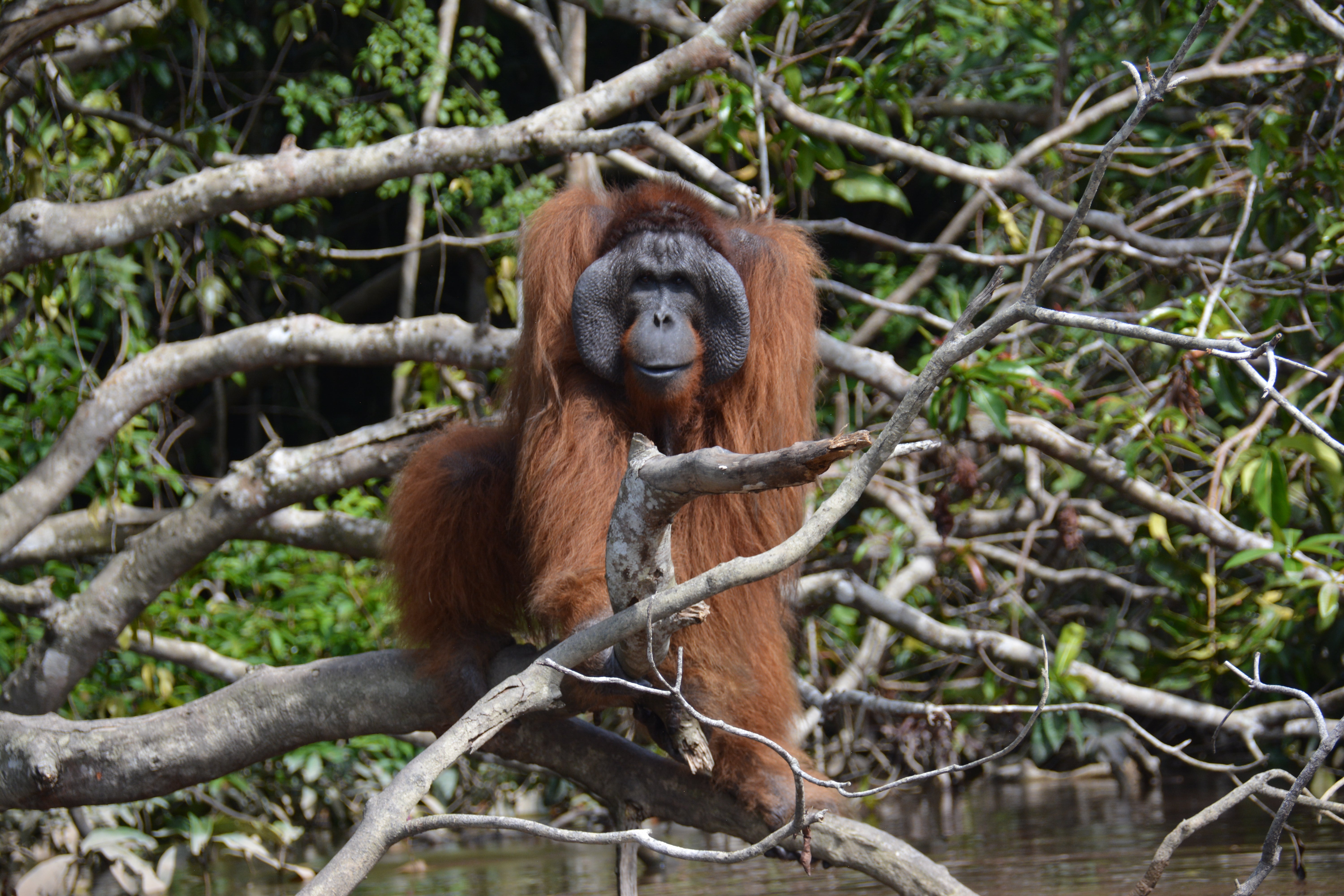
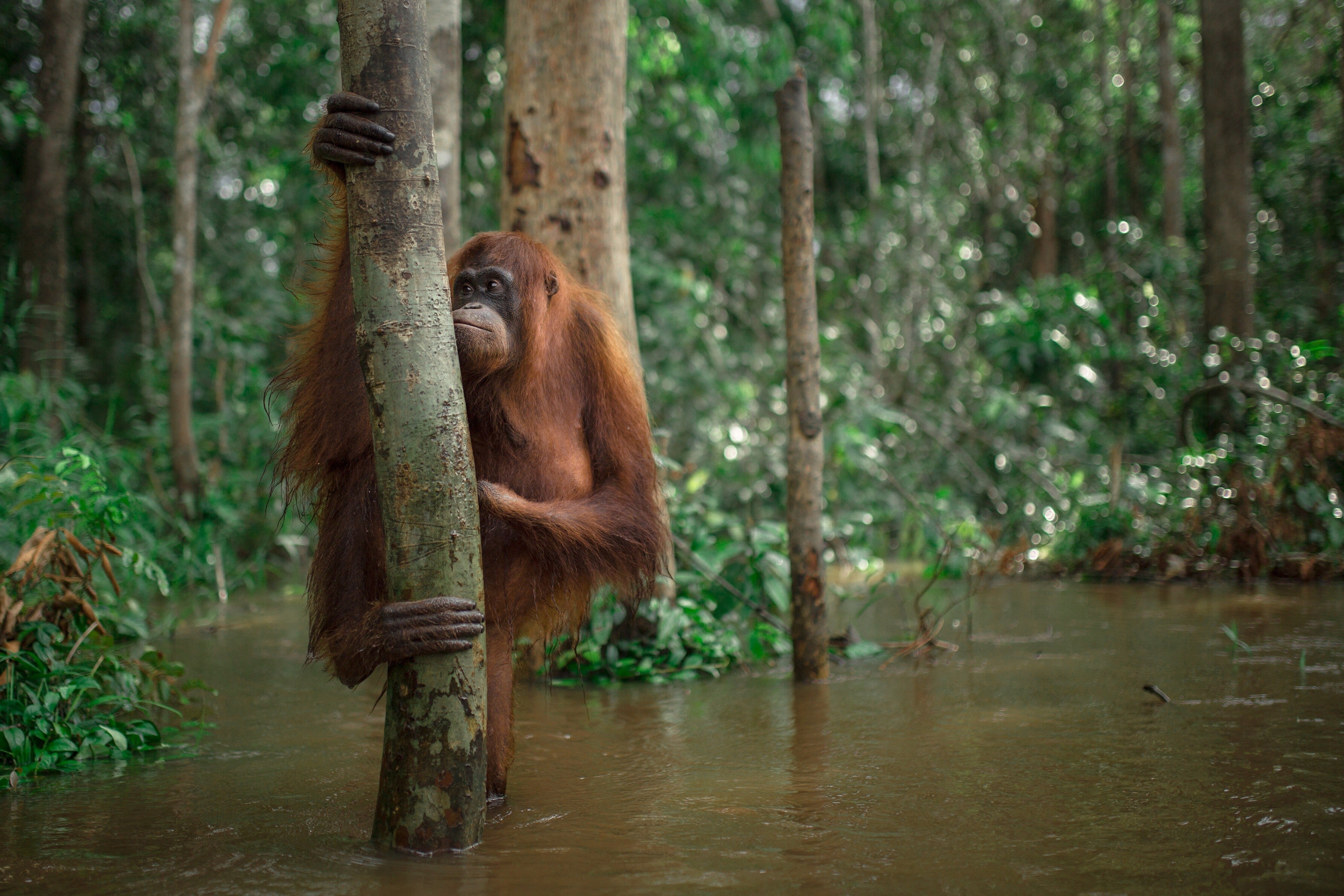
The good deed
About Germany
Jakarta
Capital city
277,534,122
population
as of 2023
4,940.5
Gross domestic product
per capita per year in USD
as of 2023
0.713
Human Development Index
(Human Development Index)
as of 2023/2024




